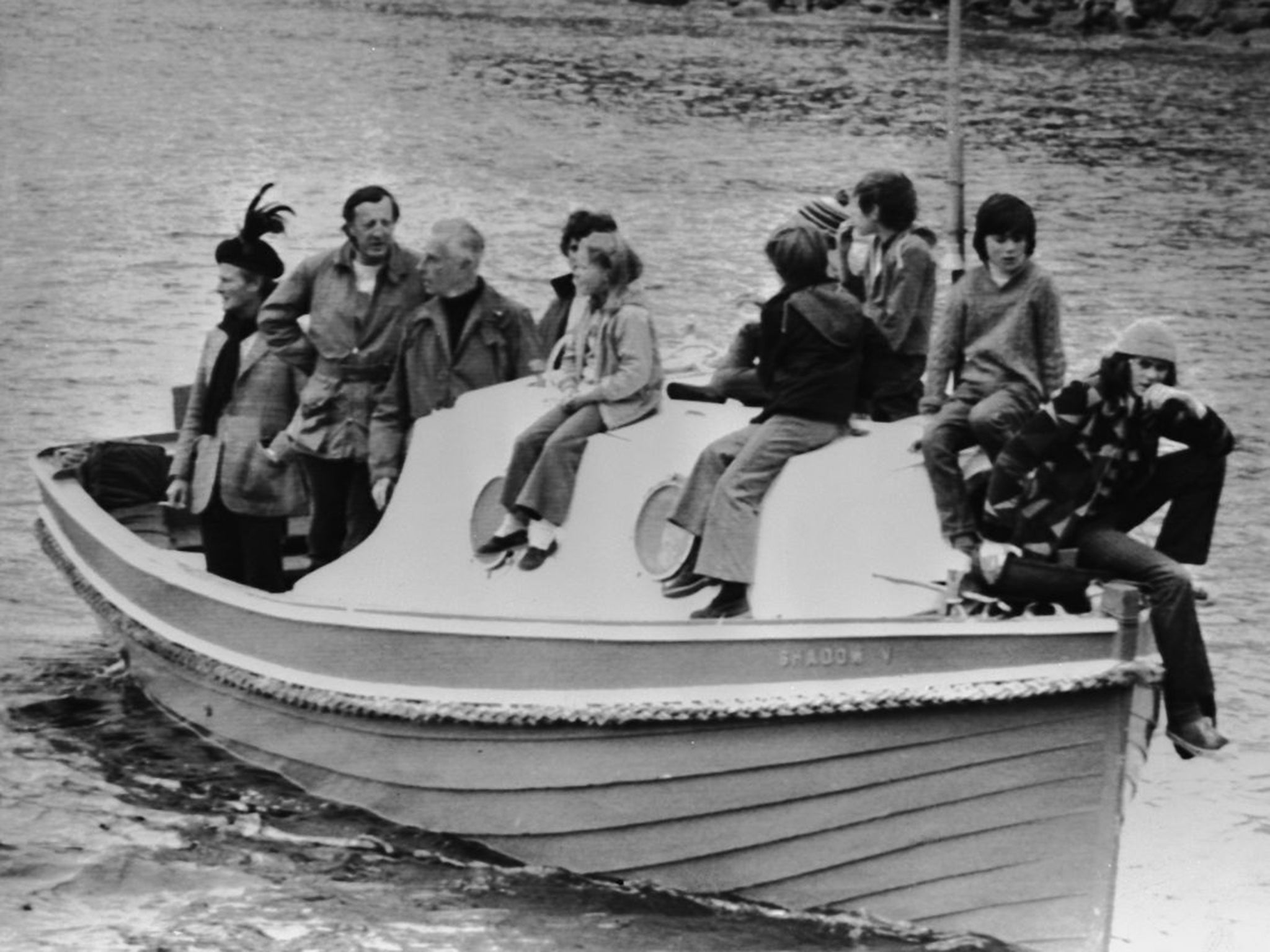Prince Charles to meet Gerry Adams and attend emotional meeting in Ireland at spot where great-uncle was killed by massive IRA bomb
The meeting is a measure of how far the peace process has come since that fateful morning in 1979

Earl Mountbatten of Burma, great-grandson of Queen Victoria, enjoyed messing about on boats. On a sunny morning in late August 1979, he and some family members, some old, some young, together with a local boy, were putting out to sea on the 30ft Shadow V.
They were off to check lobster pots off Sligo, a picturesque part of Ireland’s west coast. Little did they know what was hidden beneath the floorboards of the battered old vessel.
One of the passengers, the 83-year-old Dowager Lady Brabourne, had just remarked, “Isn’t this a beautiful day?” as they approached the shore, when a 50lb bomb, planted by the IRA the night before, blew the boat apart, killing some of those aboard and grievously injuring others.
Mountbatten, whose legs were almost blown off, and two others died almost instantly, while Lady Brabourne suffered serious injuries. As rescuers pulled her from the water she told them: “Never mind me, just look after the children.” She died early the next morning.
Her daughter, who was unrecognisable from injuries which required 117 stitches, 20 in each eye, was not expected to live but somehow survived.
Today, Prince Charles is to hold what will be an emotional meeting with those who helped to rescue the injured.
The IRA claim of responsibility was seen as particularly callous. Describing the attack as a discriminate operation, they vowed: “We will tear out their sentimental imperialist heart.” The use of the word “discriminate” was inexplicable, since the device was detonated by remote control by IRA members who had a clear view of the vessel and its passengers.
John Maxwell, whose 15-year-old son Paul was working on the boat, dashed to the scene when he heard the explosion. “There was little left of the boat apart from debris floating on the surface,” he said. “I knew he was gone.”
He added in a poignant memoir: “I lift him in my arms and feel him limp. I rock back and forth with him. We wrap up his body gently. It feels broken. In the mortuary I stay with him for a while and stroke his face and hair. I feel overcome by sadness and love. When I leave I sit down and cry... He was a better Irishman than those who did that foul deed.”
Prince Charles/Tony Blair 'Black Spider' correspondence
Show all 8Prince Charles will go to the spot where Mountbatten, his friend and mentor, died. The visit is part of the peace process which has brought about the virtual eradication of terrorist deaths.
The Queen has been at the forefront of the process, making plain her approval of it with initiatives such as meeting one-time IRA commander Martin McGuinness. Charles’s trip is the latest step designed to exorcise the ghosts of the violent past.
The bomb had huge destructive impact not just on the families of those killed but on relations between Britain and Ireland, which were instantly plunged into deep crisis.
The sense of disaster was heightened by the fact that on the same day 18 British soldiers, 16 of them paratroopers, died in an IRA bombing operation on the border. There was particular dismay because at that point hope was growing that the IRA might be on the point of defeat. Statements from London had encouraged this belief, with one cabinet minister declaring the IRA was “being rolled up like a tube of toothpaste”.
Instead, the killings of Lord Mountbatten and the 18 soldiers brought about the realisation that the IRA remained a major menace, and that years of violence probably lay ahead.
In the immediate aftermath questions were asked whether Irish police had been at fault in the protection of Lord Mountbatten in his annual trips to Classiebawn Castle, his holiday home.
His grandson Timothy Knatchbull – who lost his twin brother in the bombing and was himself badly hurt – later explained that he was assigned 28 police officers. Before each visit Mountbatten would consult the Metropolitan Police, the Home Secretary and on occasions the Prime Minister, and would go ahead “only on their very firm advice,” Mr Knatchbull recalled.
One IRA member, Thomas McMahon, was convicted of the Mountbatten murder and jailed for life. He was released after 18 years, while another republican who was acquitted of murder later died in a car accident.
Security activity has been greatly stepped up in advance of the visit. On Saturday three men appeared in a Dublin court charged with terrorism offences following seizures of arms and explosives.
Today the remaining threat comes from small scattered republican dissidents groups without popular support.
Anglo-Irish relations went through many convulsions in the years that followed and it was not until the mid-1980s that the two countries developed a concerted approach.
Today, the IRA has left the scene, with republicans pursuing their aims through Sinn Fein, which has announced it will participate in events during the Prince’s four-day visit. Sinn Fein president, Gerry Adams, is expected to meet Charles in Galway today. Mr Adams said: “There is a responsibility on us all to promote reconciliation, seek to promote healing and build on the good work done by Martin McGuinness and the English Queen.”
Although almost four decades have passed since the attack, time has yet to heal all the wounds. But one measurement of progress is to be seen in the way the threat to “tear out their sentimental imperialist heart” has been displaced by the rhetoric of peace.
Subscribe to Independent Premium to bookmark this article
Want to bookmark your favourite articles and stories to read or reference later? Start your Independent Premium subscription today.

Join our commenting forum
Join thought-provoking conversations, follow other Independent readers and see their replies